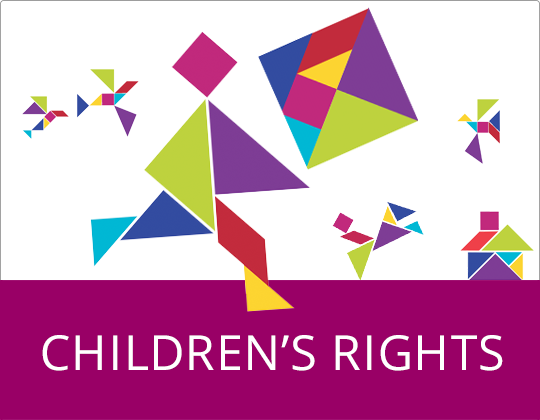Each year, the various Council of Europe institutions and committees publish many decisions, reports and judgments which have a significant impact on the development of children’s rights.
The decisions and reports of the most influential Council of Europe bodies are accessible through online databases. These bodies are:
European Court of Human Rights
The European Court of Human Rights rules on individual or state applications alleging violations of the rights contained in the European Convention on Human Rights. All 47 Council of Europe member states have ratified the Convention and therefore have access to the Court. Children’s rights are often the subject of cases before the Court.
 HUDOC case law database of the European Court of Human Rights
HUDOC case law database of the European Court of Human Rights
 Theseus: children’s rights case law database
Theseus: children’s rights case law database
Theseus was set up under the supervision of the Court’s Research Division and contains the Court’s case law regarding children’s rights.
The Court’s Press Service has compiled factsheets on the Court’s case law relating to children’s rights.
European Social Charter
The European Committee on Social Rights monitors the conformity of member states’ national law and practice with the European Social Charter which complements the European Convention on Human Rights in the field of economic and social rights. Many of the Charter’s rights relate exclusively to children, such as Article 7 (the right of children and young people to protection) and Article 17 (the right of children and young persons to social, legal and economic protection). The collective complaint procedure allows certain organisations to submit complaints of violations of the Charter with the European Committee of Social Rights. The committee then issues decisions in respect of these complaints.
 Case law database of the European Committee on Social Rights
Case law database of the European Committee on Social Rights
 Factsheet on children’s rights under the European Social Charter
Factsheet on children’s rights under the European Social Charter
European Committee for the Prevention of Torture and Inhuman or Degrading Treatment or Punishment (CPT)
The CPT is a non-judicial preventive mechanism to protect persons deprived of their liberty against torture and other forms of ill-treatment. For this purpose the CPT conducts visits to detention centres in order to assess how persons deprived of their liberty are treated. During its visits the CPT also assesses the situation of children and dedicates specific attention to children’s rights in its reports.
 HUDOC CPT database
HUDOC CPT database
The CPT database contains:
- all CPT reports
- public statements made by the CPT
- the standards as set out in the CPT’s annual general reports




